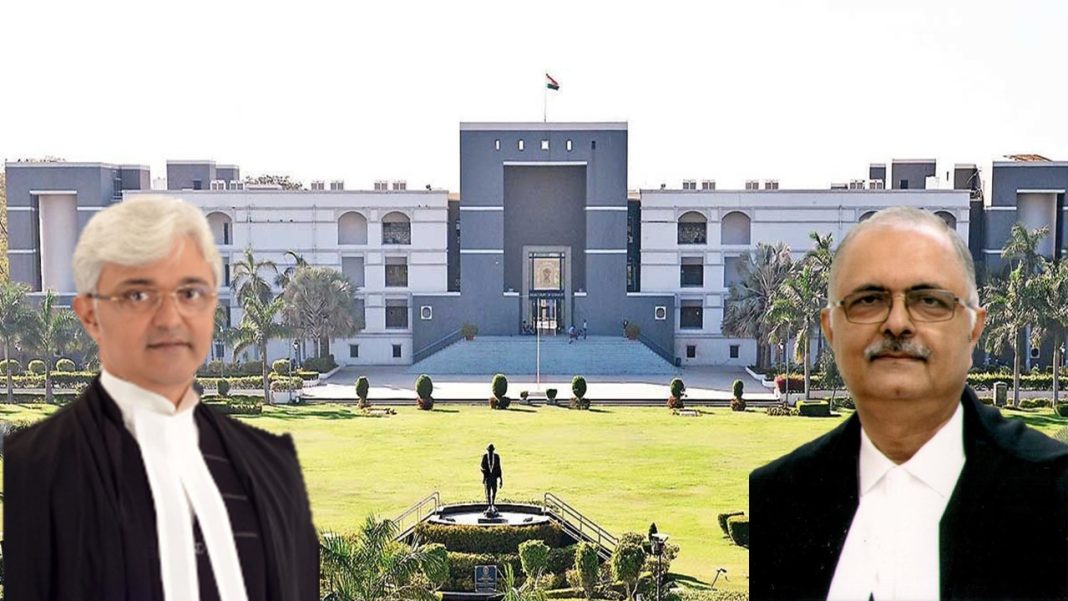Gujarat HC Quashes Reassessment: Deposits Pertaining to Earlier AY Cannot Justify Reopening
The present writ petition (R/Special Civil Application No. 8150 of 2024) has been filed by Ajay Cotspin Industries (petitioner) under Article 226 of the Constitution in the Gujarat High Court before the benches comprising Honourable Mr Justice Bhargav D. Karia and Honourable Mr Justice Pranav Trivedi against the Income Tax Officer, Ward 1, Mehsana (respondent). Through the writ petition, the petitioner challenged an order and a notice dated 29.03.2024, relating to the assessment year 2018-19. The petitioner prayed the court to quash both the order and the notice and also requested interim relief.
The petitioner, Ajay Cotspin Industries, is a partnership firm engaged in the cotton business. The company filed its income tax return (ITR) for Assessment Year 2018-19 on 03.07.2018, declaring total income of Rs. 1,43,63,430, and then filed a revised return on 11.03.2019. The Income Tax Department issued a show cause notice to the company under Section 148A(b) based on information from the Insight Portal, showing that the petitioner had done several large financial transactions, including Big deposits and withdrawals with Mehsana Urban Cooperative Bank, Sales and purchases of yarn and cotton scrap with a firm called Mittal Enterprise (owned by Mohit Mittal), Sale of mutual funds, TDS (tax) linked to the sale of a motor vehicle, and purchase of foreign currency.
Altogether, these transactions added up to about Rs. 25.52 crore, and the department believed that this income had not been properly reported in the return for the Assessment Year 2018-2019. The petitioner filed a detailed reply to the notice on March 4, 2024, along with all relevant documents. Thereafter, the department issued an order dated 29.03.2024, under section 148A(d) of the Act, claiming a total of Rs. 38,439,847 in income had escaped assessment for the year.
The cash deposits during demonetisation happened in the financial year 2016-17, which is relevant to Assessment Year 2017-18, not 2018-19 (the year for which the reopening was done). Hence, the department had no jurisdiction to reopen the 2018-19 assessment based on those transactions. For the transactions with M/s. Mittal Enterprise, the firm, had already submitted the ledger account from its audited books, which are part of its ITR filing. The officer rejected this just because the firm hadn’t provided the sales/purchase register, even though the ledger already showed the transactions clearly. So, according to the firm, there was no concealment and no new information justifying a reopening under Section 148.
The high court, in its final order, ruled that the deposit of Rs. 1.67 crore was made during demonetisation (Nov-Dec 2016). That period falls under Assessment Year 2017-18. But the reassessment was being done for Assessment Year 2018-19. Therefore, using this deposit as a ground to reopen AY 2018-19 was legally incorrect. On the Rs. 2.17 crore Mittal Enterprise transaction, the firm had submitted ledger accounts from its audited books. The officer rejected the explanation only because the sales and purchase registers weren’t provided. The Court said this alone is not enough reason to conclude that income escaped assessment. A prima facie belief that income escaped assessment should be based on credible new information, not assumptions.
The court quashed the impugned order and notice dated 29.03.2024, and ruled that the reopening of the case was not justified and the Assessing Officer did not have valid jurisdiction. The decision was made in favour of the petitioner.
Citation: Ajay Cotspin Industries Vs Income Tax Officer; R/Special Civil Application No. 8150 of 2024; 26/08/2025; 2018-19; Gujarat High Court



